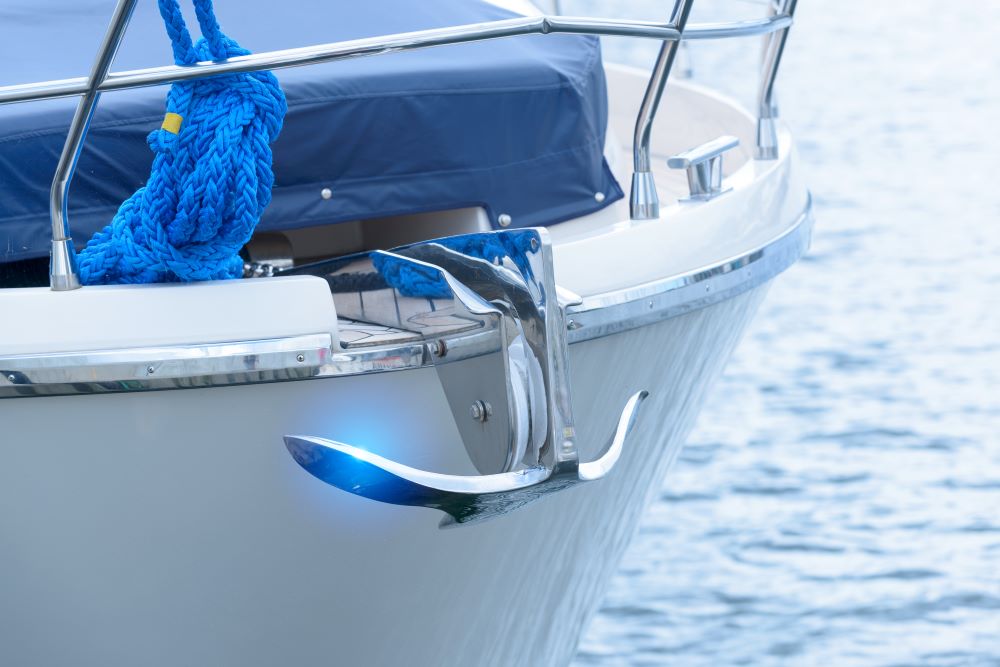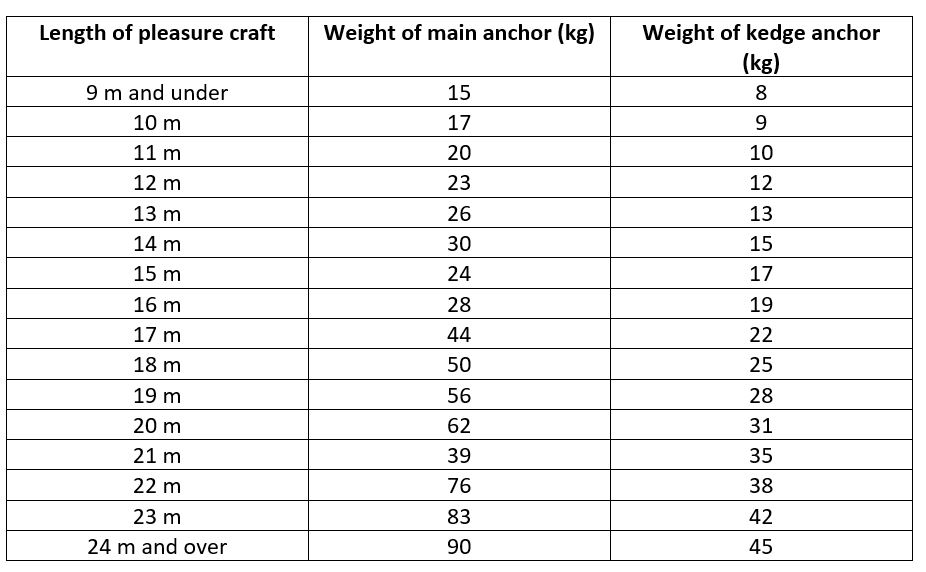
What are the different types of boat anchors?
When you are on a stopover or need to drop your boat’s anchor in an emergency situation, you need to be confident in your anchor line. One of the keys to a good anchor line is choosing the right anchor for the job.
The anchor is one of the different parts of a boat and it is important to choose the right one from the available options. The choice of the anchor for your boat will depend on different factors such as the weight of the anchor, the length of the anchor line and the type of seabed being crossed.
In this article, our experts explain the importance of marine anchors and present the different types of anchors available.
Why is a boat anchor important?
An anchor is a piece of boating safety equipment that must be carried on your boat. It helps stabilize your boat at a specific location, whether in an emergency or not. Choosing the right anchor for your boat is important and will depend on your navigation area and the places where you intend to anchor your boat.
To successfully anchor a boat, you need a good anchor line and an appropriate anchor. Choosing a marine anchor is not always easy. There are different types of boat anchors. Each of them has its own characteristics and guarantees a good hold on each seabed with varying degrees of success.
Types of boat anchors
The anchor is one of the most important parts of any boat, as it can keep you safe and stable in strong winds or moving water. These conditions are especially dangerous when sleeping or when there are swimmers near your boat. You should always use a high quality line with a ring size appropriate to your mooring situation.
Before leaving your boat, you must make sure it is perfectly anchored. It is also important to be alert for signs of anchor slippage. When choosing a marine anchor, its holding capacity and the characteristics of the seabed where it will be used must be taken into account.
Danforth or fluke anchor
The danforth or fluke anchor has a double plate, one side of which is used to give an ideal entry angle to the two large, hinged flukes attached to it. This marine anchor can be used on sandy and muddy beds but has difficulty entering hard or algae-covered beds.
Plough anchor
The plow anchor is extremely popular among boaters. This type of anchor is quite versatile for any water bed, without being exceptional in any one of them.
This type of marine anchor is inspired by plows, as its name suggests. Its main advantage is that it can be easily replanted after a stall. There are also different models of plow anchors. For more information, contact a professional!
Grapnel anchor
The grapnel anchor is a simple piece of equipment to design and manufacture. It has the advantage of being able to be planted in any position on the seabed. However, the advantage of this boat anchor is also its disadvantage, since it can get stuck easily and be difficult to raise.
Claw anchor
The claw anchor is one of the most effective anchoring devices, regardless of the type of seabed being crossed. This type of anchor is shaped like a scoop with a weighted tip that allows it to sink more effectively into the seabed. This model is the most efficient and its price is naturally higher than other marine anchors.
Which boat anchor weight to choose according to the size of the boat
The weight of your boat’s anchor will vary depending on the length of your boat. In addition, since marine safety requires a main anchor and a kedge anchor, you must choose both of these items carefully.
Table showing the weight of the main anchor and the jet anchor to use according to the size of the boat
Learn more about boat anchors from the National Boating Safety School
When navigating on rough seas or bodies of water, Canadian boating law requires that you have an anchor on your boat. In order to choose the best anchor possible, you must follow the criteria above.
If you want to learn more about boat anchors and boating equipment, register for our safe boating course today.
Contact us now for more information! Our team will take the time to answer all your questions.


